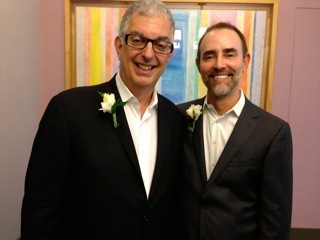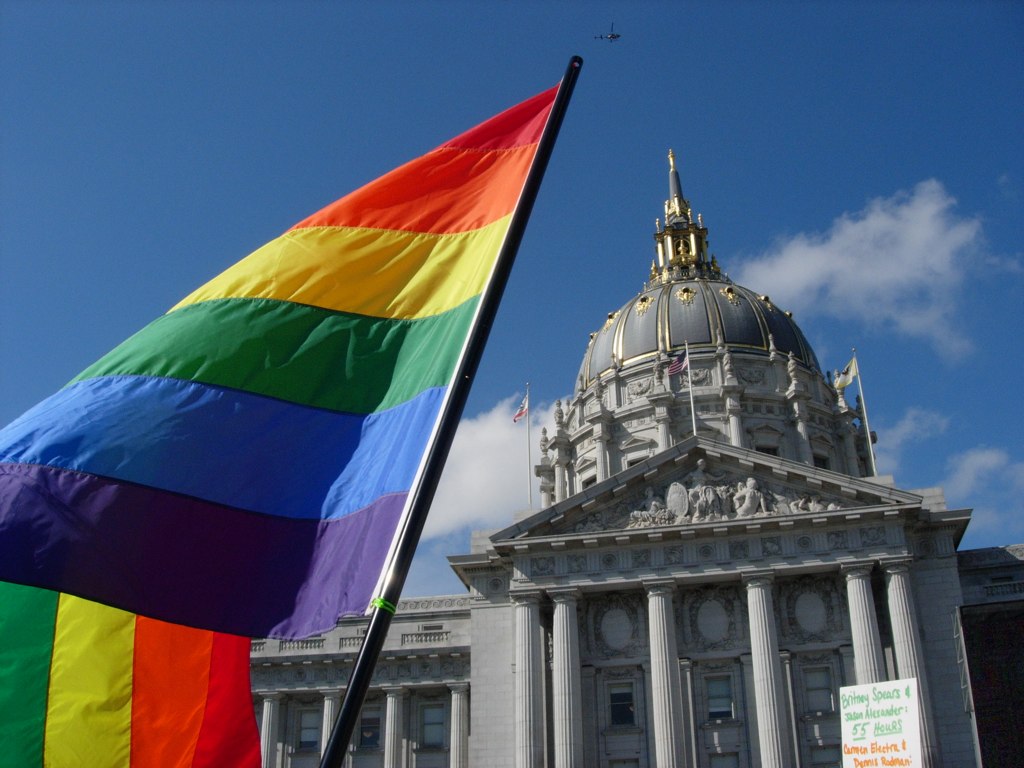How Marriage Equality Saved My Life
By:
On June 26, 2013, the Supreme Court made marriage equality the law of the land.
I remember the day well as my now husband, Michael, and I were glued to the MSNBC feed waiting for the decision. We had decided that we were not going to get married until marriage was legal in all 50 states. And now finally, that day had come. We cried, we kissed, we jumped up and down and hugged each other along with all of the community that had worked so hard to bring this day about.
On July 17, 2013, Michael and I were married in New York City at City Hall.
 Joel Silberman
Joel Silberman
It was a very special day for us, but little did I know how important it would be.
 Flickr - flickr.com
Flickr - flickr.com
You see, up until the decision for marriage equality, I only had certain rights in all states in a marriage to Michael.
With the decision, Michael put me immediately on his Government Employee Health Association group plan, which he had had for the 34 years he worked for the federal government. That plan became my secondary insurance, as my primary had become Medicare four days earlier on my birthday.
Before marriage equality was enshrined by law, such arrangements were much harder to come by. As Katie Heath, a steering committee member at Out2Enroll, told HealthInsurance.org in 2016 "not every insurer was offering that coverage" to LGBT couples in domestic partnerships or civil unions.
I have to say that when I was 21 at the time of the Stonewall Riots, marriage was not even a gay fantasy.
We simply wanted to be treated as human beings and American citizens with the same rights as everyone else.
In the early 80’s, I knew that the AIDS crisis was killing friends I was working with on Broadway. We didn’t sit still; we went to the Act Up demonstrations where we chanted SILENCE = DEATH. I produced the first ever AMFAR benefit for Leonard Bernstein in 1985 at NYC’s Public Theater to raise money and consciousness. I remember those days of activism as if they were yesterday.
Now, all this seems pretty straightforward, just another gay story you could say. But everything changed two weeks ago. That's when I was given a diagnosis of stage II pancreatic cancer. And last week I started an aggressive course of systemic chemotherapy with the hopes of curing the disease or shrinking the tumor so that the surgeon can get to it with clean margins. I am most fortunate. I live in the District of Columbia minutes away from Johns Hopkins Hospital, which is the number one hospital for pancreatic cancer in America. I have the best doctors and oncologists.
But had it not been for marriage equality, I wouldn't have had a secondary insurance policy and our retirement could have easily been wiped out over the next nine months of cancer treatment. And that really upset me. Not over my retirement, but for all of those who are not as fortunate as I am to have the kind of coverage that I have.
The fight for marriage equality ensured that I would have access to my husband's health care plan; now we must fight to ensure that everyone has coverage, regardless of their marital status.
A Congressional Budget Office report released today reveals just how lucky I am to be covered by my husband's plan; 22 million more Americans could go uninsured should the Republican-backed American Health Care Act pass.
Many, many, people were responsible for equality that saved my life. And now we all must come together again and save the lives of many more from healthcare bill that will truly bankrupt or kill people.
Hear the rest of Joel Silberman's story below:
Joel Silberman is a distinguished media critic, expert, and strategist as well as the author of the upcoming book "Politics Is Theater With Real Bullets."
